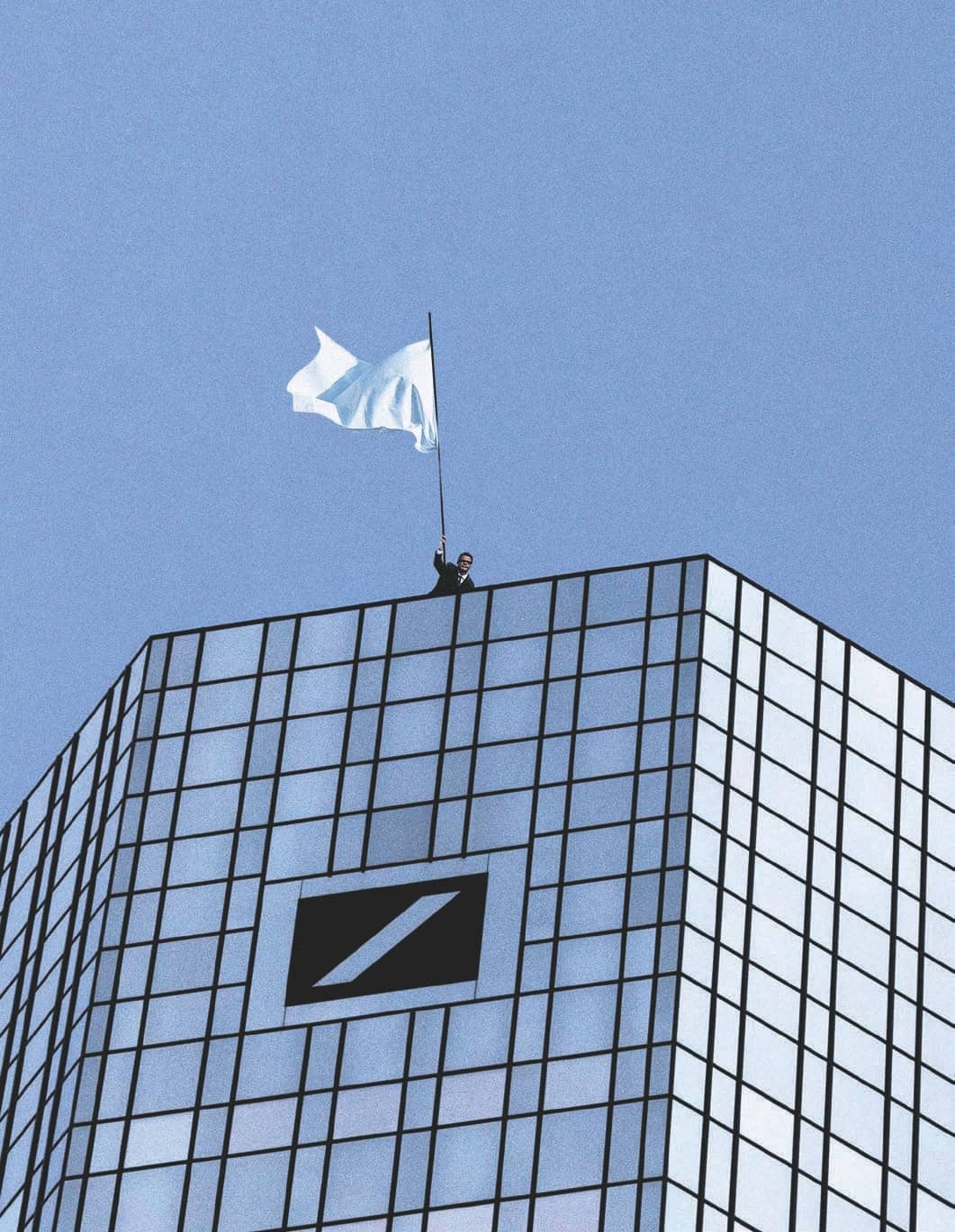The iconic German bank finally pares down its ambitions. But is it too late?

For decades, Deutsche Bank AG had one predominant aspiration: to compete with Wall Street. In abandoning global stock trading, Germany’s biggest bank is giving up on that ambition. No financial company has exited the equities business of this scale before. As Chief Executive Officer Christian Sewing put it in announcing the company’s restructuring on July 7, Deutsche Bank’s “North Star” will now be closer to its Frankfurt headquarters.
It’s a return to its 150-year-old corporate and trade-finance roots. The sweeping and costly rethink hasn’t come soon enough. Years of mismanagement, multibillion-dollar fines, and declining revenue have eroded the company’s profitability. What was once a powerhouse of global finance has been crippled and left with an uncertain future. Nowhere has the lack of confidence in Deutsche Bank’s ability to survive—let alone thrive—been more visible than in its share price. Down more than 90% from its May 11, 2007, peak to record lows this year, the stock market values the lender at about one-quarter of its physical assets. By comparison, JPMorgan Chase & Co., against which Deutsche Bank vies for business, is eight times more expensive.
Under Sewing, a company lifer who worked his way up from an apprenticeship, Deutsche Bank is finally jettisoning what it was never very good at. The equities business has been losing money for years. In retrenching, the bank will shrink its trading activities by as much as 40%, and about 18,000 jobs—almost 20% of the workforce—will go.
While the loss of jobs will be painful for those involved, eliminating a business that’s been a drag on the company is what Deutsche Bank should have done sooner. Once complete, the pivot will see Deutsche Bank focus more on its corporate customers, large and medium-size companies, at the expense of hedge funds and other financial-services clients.
Bu hikaye Bloomberg Businessweek dergisinin July 15, 2019 sayısından alınmıştır.
Start your 7-day Magzter GOLD free trial to access thousands of curated premium stories, and 9,000+ magazines and newspapers.
Already a subscriber ? Giriş Yap
Bu hikaye Bloomberg Businessweek dergisinin July 15, 2019 sayısından alınmıştır.
Start your 7-day Magzter GOLD free trial to access thousands of curated premium stories, and 9,000+ magazines and newspapers.
Already a subscriber? Giriş Yap

Instagram's Founders Say It's Time for a New Social App
The rise of AI and the fall of Twitter could create opportunities for upstarts

Running in Circles
A subscription running shoe program aims to fight footwear waste

What I Learned Working at a Hawaiien Mega-Resort
Nine wild secrets from the staff at Turtle Bay, who have to manage everyone from haughty honeymooners to go-go-dancing golfers.

How Noma Will Blossom In Kyoto
The best restaurant in the world just began its second pop-up in Japan. Here's what's cooking

The Last-Mover Problem
A startup called Sennder is trying to bring an extremely tech-resistant industry into the age of apps

Tick Tock, TikTok
The US thinks the Chinese-owned social media app is a major national security risk. TikTok is running out of ways to avoid a ban

Cleaner Clothing Dye, Made From Bacteria
A UK company produces colors with less water than conventional methods and no toxic chemicals

Pumping Heat in Hamburg
The German port city plans to store hot water underground and bring it up to heat homes in the winter

Sustainability: Calamari's Climate Edge
Squid's ability to flourish in warmer waters makes it fitting for a diet for the changing environment

New Money, New Problems
In Naples, an influx of wealthy is displacing out-of-towners lower-income workers